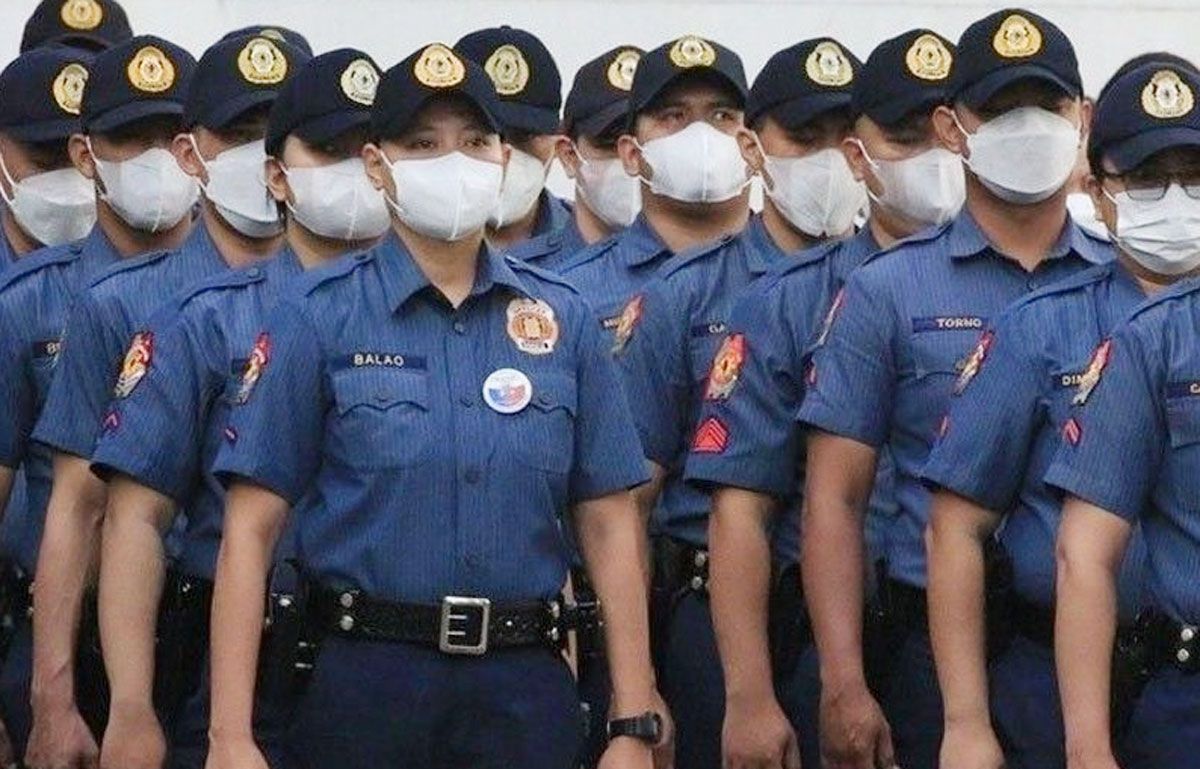A recent policy of the Philippine National Police (PNP) banning aspirants from having body tattoos– which it links to those with criminal records or even belonging to groups engaged in crimes– was denounced by two congressmen, who urged the PNP for a reorientation of their bias against “this art form of expression.”
Rep Jonathan Keith Flores (Bukidnon, 2nd district), vice chair of the committee on justice and member of the committee on human rights; and Rep. Joel Chua (Manila, 3rd district) chided the PNP for this old-fashioned way of thinking.
In separate press statements, the congressmen said the PNP needs new mindset on tattoos, not new policy against police aspirants and those in the force with tattoos.
Flores said: “As a lawyer and a Member of the House Committee on Human Rights, I do not agree with the new PNP policy against tattoos on police aspirants and current police officers. Makalumang kaisipan na po iyang stereotyping na biased laban sa mga taong may tattoo. Hindi naka-base ang pananaw na iyan sa bagong realidad ngayong 21st century. Wala ring basehan sa batas. Tila ang Philippine National Police mismo ang kailangan ng bagong orientasyon.”
The PNP should not make tattoos a proxy or indirect indicator of “good moral conduct” or “of sound mind and body.”
Neither is the overt reason stated by the PNP spokesperson, couched in terms of supposed negative public image reasons, among the qualifications and disqualifications enumerated in Section 30 of Republic Act 6975. The reason stated is, therefore, illegal and without basis in the law establishing the PNP, he added.
He stressed that “In any enumeration stated in law, what is not included is excluded.”
It can also be considered unconstitutional to discriminate in a way against people with tattoos because tattoos are symbols of expression of faith, love, and association.
Tattoos also have nothing to do at all with the competence and skills needed to become law enforcers. Therefore, the ban on tattoos is irrelevant as a disqualification.
‘Unconstitutional’
Chua also called the PNP policy on tattoos “unconstitutional and has no legal basis.”
“Walang basehan sa batas ang nabunyag na bagong patakaran ng Philippine National Police ukol sa tattoo. Wala sa Code of Conduct and Ethical Standards for Public Officials and Employees (RA 6713). Wala rin sa batas na nagtatag sa Philippine National Police (RA 6975),” Chua said.
“Wala sa qualifications at disqualifications na nakasaad sa Section 30 ng RA 6975. Ni hindi nga ipinagbawal o tinutulan ng Supreme Court na magka-tattoo ang mga huwes sa naging desisyon nito sa isang administrative case tungkol sa social media posts ng isang judge sa La Union (A.M. No. RTJ-21-018, September 29, 2021),” he added.
There is a saying in statutory legal construction that essentially means, “What is not included is excluded.” This dictum applies especially so when there is a detailed enumeration of what is included. In the laws I have cited, tattoos or anything similar to tattoos are not included.
He qualified that the only possible reason to use tattoos as a basis to exclude or discriminate against anyone is if the tattoo means actual current membership and participation in any active criminal organization. It is the membership in the criminal organization that must be proven first.
Tattoos not a basis of criminal behavior
Tattoos are not probable cause for that--not even membership in jail gangs because it is the criminal activity that must be proven to actually exist, not the mere presence of the tattoos.
Tattoos cannot even be used to discriminate against former convicts who have served their sentences in jail because our laws advance restorative justice and integration into society of ex-convicts. Tattoos should not be used as indirect indicators of possible criminal behavior.
The only rule I know of that includes tattoos as disqualification is for blood donation. Recent tattoos not more than one year disqualify the applicant from giving blood, but if the tattoo is more than one year ago, the blood donor may give blood. (https://redcross.org.ph/how-to-donate/ )
Requiring police officers to remove their visible tattoos also exposes those officers to health risks such as infection. Tattoo removal is safe only if it is done by licensed healthcare practitioners with specific training and certification in tattoo removal.
It is disappointing that our PNP has this negative mindset about people with tattoos. Tattoos have nothing to do with the job performance of any police or public servant.
The PNP should discard that policy now before they get into legal trouble for the unconstitutionality of their policy. Tattoos are an art form of expression. The Constitution protects freedom of expression. By all indications, the PNP policy on tattoos is unconstitutional.
#WeTakeAStand #OpinYon #PNP #PoliceAspirantsWithTattoo #TattooArt
